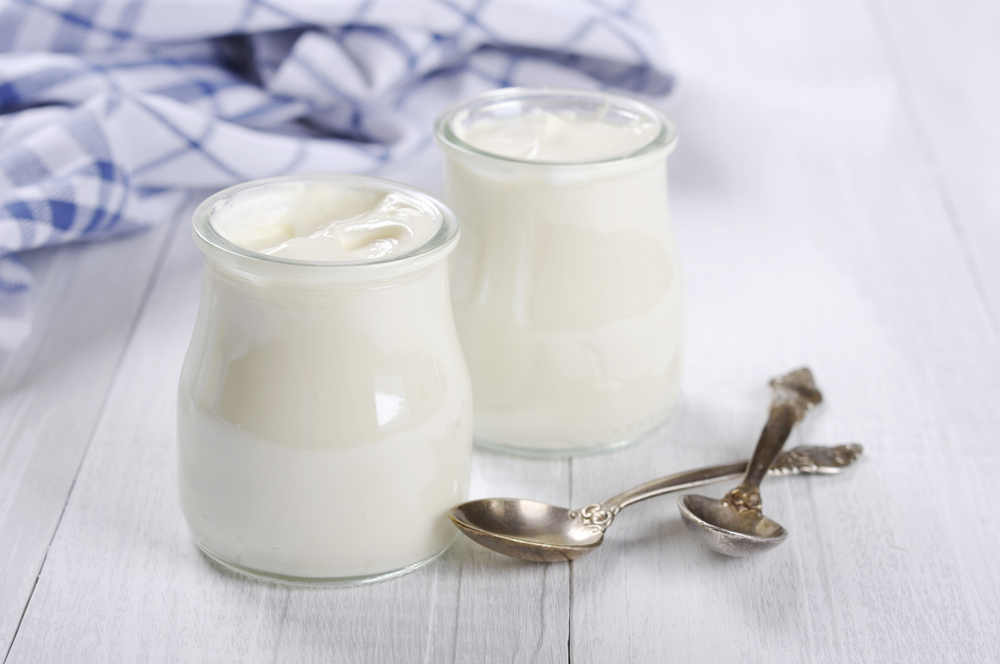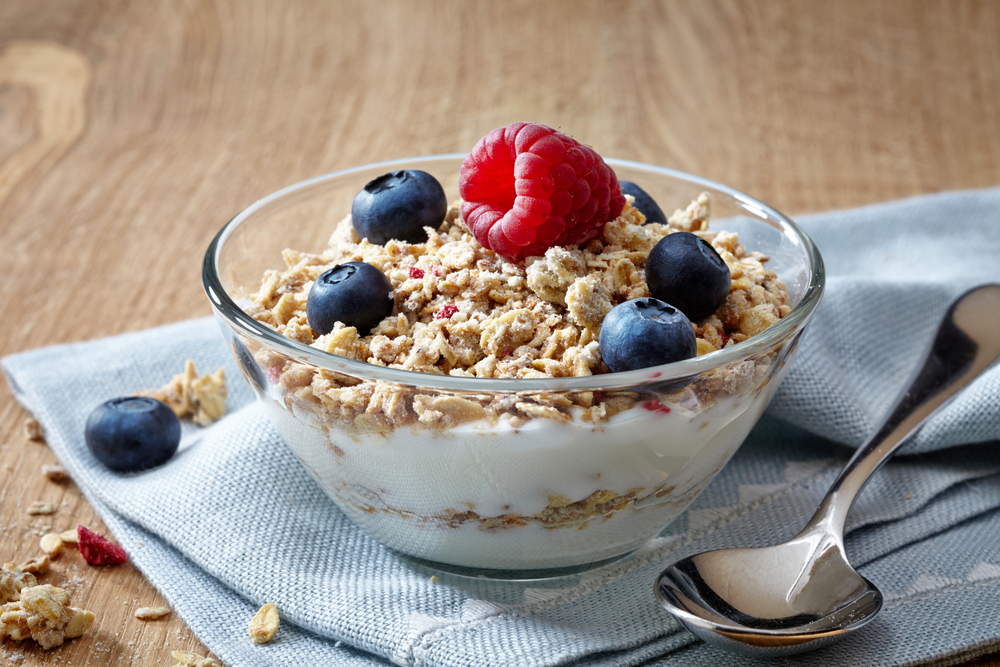Yogurt is one of the stars of the daily aisle and is loved throughout the world as a lighter dessert option. Mostly consumed in Europe but still popular in North America, when it comes to nutritional goodness, yogurt often goes head to head with cottage cheese. So which one actually does more for your body? Do they have the same advantages if you’re physically active? It’s time for a showdown: yogurt vs cottage cheese. Let the games begin!

Both yogurt and cottage cheese come from processing milk, although these processes are different for each dairy product.
Yogurt is one of many fermented dairy products, and some countries strictly regulate the use of its name and how it’s produced. Milk fermentation occurs with the help of two lactic acid bacteria: Lactobacillus bulgaricus and Streptococcus thermophilus. The milk then solidifies and turns into an acidic gel. This production method was invented by the medieval Turks, who gave it the name yoğurt.
Milk curdling was discovered when milk used to be stored in animal stomach and would mix with the animal rennet, a mix of enzymes that curdle milk to form curds. Cottage cheese is believed to have come from any milk left over after making butter in cottages, dating back to the 19th century. It’s made by adding lactic acid to milk, which causes it to separate the milk solids from the whey. Once curds form, they’re cut into pieces in order to drain the excess whey. The curds are cooked again and are gently pressed to get rid of any remaining whey, then they’re rinsed and salted.

There are a few different main kinds of cottage cheese, depending on its fat content: regular, lowfat/reduced fat/nonfat and dry-curd. From there, you can also find small or large curd, whipped and lactose-free.
When comparing these two dairy products, both have equally interesting nutritional benefits, but who will prevail?
To make the decision easier when you get to the dairy aisle, let’s compare their number of calories. According to fatsecret.com, there are about 56 calories in a 100 g-serving of nonfat plain yogurt and 85 calories in a 100 g-serving of nonfat cottage cheese.
When comparing their other nutrition facts, you’ll notice that yogurt is higher in carbohydrates, which translates to sugar: 7.68 g for yogurt vs 1.85 g for cottage cheese. There’s less milk sugar, called lactose, in cottage cheese.
At this point, you could say that cottage cheese is better if your goal is to lose weight.
These two dairy products are high in animal protein, which are macromolecules your body absolutely needs. Cottage cheese contains 17.27 g of protein per 100 g, whereas yogurt contains only 5.73 g per 100 g-serving, making it even more ideal for losing weight because protein helps you feel full. Besides that, it also provides more protein your muscles need after your workout.

But yogurt knocks cottage cheese out of the park if you compare their potassium and calcium contents. Yogurt contains 255 mg per 100 g-serving, whereas cottage cheese contains only 32 mg per 100 g-serving. In terms of calcium, 100 g of yogurt contains 20%, whereas 100 g of cottage cheese contains only 3%. And don’t forget: calcium is vital for strong bones.
If you’re a serious athlete, cottage cheese will meet your needs by guaranteeing healthy muscle regeneration after exercise with fewer carbohydrates. Keep your weight down as you gain muscle mass. But we still encourage you to enjoy a variety of dairy products, so don’t rule out yogurt completely. Each one has its advantages!
So when it comes to yogurt vs cottage cheese, who’s YOUR winner?
Join the 7 million users already registered on FizzUp
Join us